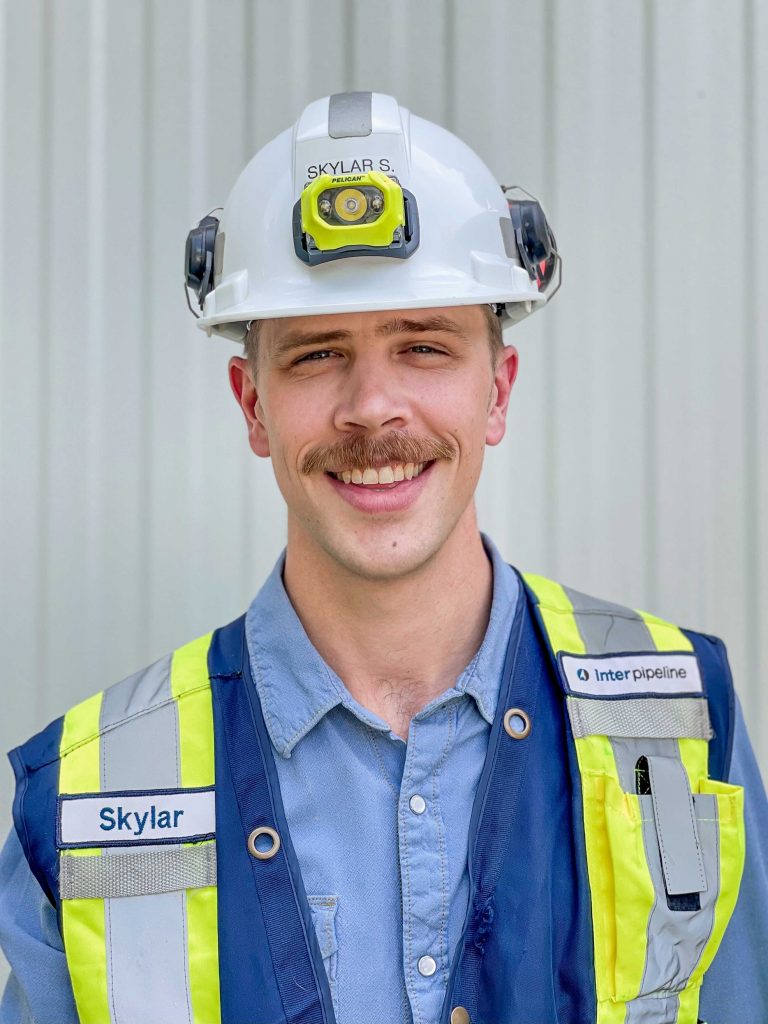Day in the Life: Skylar – Operations Technician, Inter Pipeline
- 3 min read

When Skylar was first started on a drilling rig, he did not plan to work there long-term. “It’s so physically demanding,” he says. “It is taxing on your body, and work-life balance can be difficult.” So, after seven years on the rigs, Skylar decided to upskill and went back to school to earn a diploma from SAIT in power engineering.
“My brother had finished the power engineering diploma and was working as an operator. He convinced me it would be a good career to consider,” explains Skylar. “After asking him more about the job and doing my own research, I decided I would give it a shot.”
Today, Skylar works in an emerging and fast-growing area of the energy industry — petrochemicals — and he couldn’t be happier with his decision to make a career change. He admits those two years spent getting his diploma were hard at times and that he had his doubts, but encourages those in similar situations to keep pushing.
“The change I made was difficult, but I would do it a hundred times over.”
Skylar, Operations Technician
A typical day
As an operations technician at Inter Pipeline’s still-under-construction Heartland Petrochemical Complex, Skylar says the best part of his job is constantly learning. “It’s interesting, challenging… never boring,” he says. “Every day is different.”
Most mornings start with a meeting to discuss the team’s plan for the day and set priorities. Tasks include everything from writing or reviewing work procedures to validating new equipment that was ordered to support the project. Skylar’s team also issues work permits for trades people. The permits ensure that everyone understands the job scope, the hazards involved and how to complete the work safely.
Skylar says two of the skills he uses most in his role are problem solving and communication. As they take over equipment over from construction, he and his team examine piping and instrumentation diagrams (P&IDs) and isometric drawings (visual representations of three-dimensional objects in two dimensions used in technical and engineering drawings) to familiarize themselves with the equipment and ensure it was built correctly. Then the problem solving and communication come into play. Whether it’s developing a procedure so workers can perform tasks safely and efficiently, or requesting additional work be performed on the equipment, this part of the job directly impacts worker safety and must meet the highest standards.
Working in the energy industry
Skylar is glad he pursued a career in energy and says it has given him a lot to be thankful for, including the chance to be part of a new and exciting project, creating lifelong friendships, and learning invaluable skills. And the number one thing he’s gained from working in the energy industry is a deeper understanding and appreciation for workplace safety.
“The energy sector is anything but linear, and it can seem like completely different worlds depending on your job or where you’re located. By being aware of and understanding these differences, I’m able to play a role in helping to make sure everyone goes home safely at the end of the day.”
Skylar, Operations Technician
Company
Location
Fort Saskatchewan, Alberta
Average Salary
$57,000 to $102,000
Education
High school diploma
Salary, education and advancement may vary from company to company.
